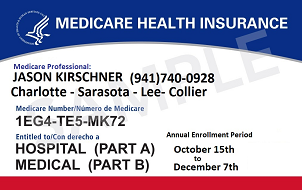What are late enrollment penalties? 
Medicare late enrollment penalties are fees that may be charged to individuals who do not enroll in Medicare during their initial enrollment period and do not have other creditable health coverage. The initial enrollment period for Medicare is a seven-month period that begins three months before an individual's 65th birthday month and ends three months after their birthday month.
If an individual does not enroll in Medicare during their initial enrollment period and they do not have other creditable health coverage, they may be subject to a late enrollment penalty if they later enroll in Medicare Part A, Part B, or Part D. The penalty amount varies depending on the length of time the individual went without creditable coverage.
The late enrollment penalty for Medicare Part A is 10% of the monthly premium for twice the number of years the individual could have been enrolled in Part A but was not. The penalty for Medicare Part B is 10% of the monthly premium for each 12-month period the individual was eligible for Part B but did not enroll. The penalty for Medicare Part D is calculated as 1% of the national base beneficiary premium for each full month the individual was eligible for Part D but did not enroll.
It's important to note that some individuals may be exempt from late enrollment penalties, such as those who have employer-sponsored health coverage or who qualify for a special enrollment period. It's always a good idea to speak with a Medicare representative or a licensed insurance agent if you have questions about Medicare enrollment and penalties.
Late enrollment penalties:
- Are added to your monthly premium.
- Are not a one-time late fee.
- Are usually charged for as long as you have that type of coverage (for most people, that's a lifetime penalty). The Part A penalty is different.
- Go up the longer you wait to sign up - they're based on how long you go without coverage similar to Medicare.
Medicare Programs that may help offset late enrollment penalties
There are no specific Medicare programs that help pay late enrollment penalties directly. However, there are some programs that may indirectly help with the cost of late enrollment penalties. Here are a few examples:
- Medicare Savings Programs (MSPs): MSPs are state-run programs that help people with low income and limited resources pay for their Medicare premiums, deductibles, and copayments. If you are eligible for an MSP, it can help alleviate some of the financial burden of late enrollment penalties by reducing your out-of-pocket costs for Medicare.
- Extra Help/Low-Income Subsidy (LIS) program: This program helps people with limited income and resources pay for their prescription drug costs under Medicare Part D. If you are eligible for Extra Help, you may be able to avoid late enrollment penalties for Part D by enrolling in a plan during a Special Enrollment Period.
- State Health Insurance Assistance Program (SHIP): SHIP is a free counseling service that provides information and assistance to Medicare beneficiaries and their families about Medicare, including late enrollment penalties. They can help you understand your options and navigate the enrollment process.
- Medicare Advantage plans: Some Medicare Advantage plans may offer additional benefits or lower out-of-pocket costs compared to Original Medicare. If you are eligible to enroll in a Medicare Advantage plan, it may be a good option to help offset the cost of late enrollment penalties.
It's important to note that while these programs may help with the cost of Medicare, they do not directly pay for late enrollment penalties. The best way to avoid late enrollment penalties is to enroll in Medicare during your Initial Enrollment Period or a Special Enrollment Period if you qualify.


